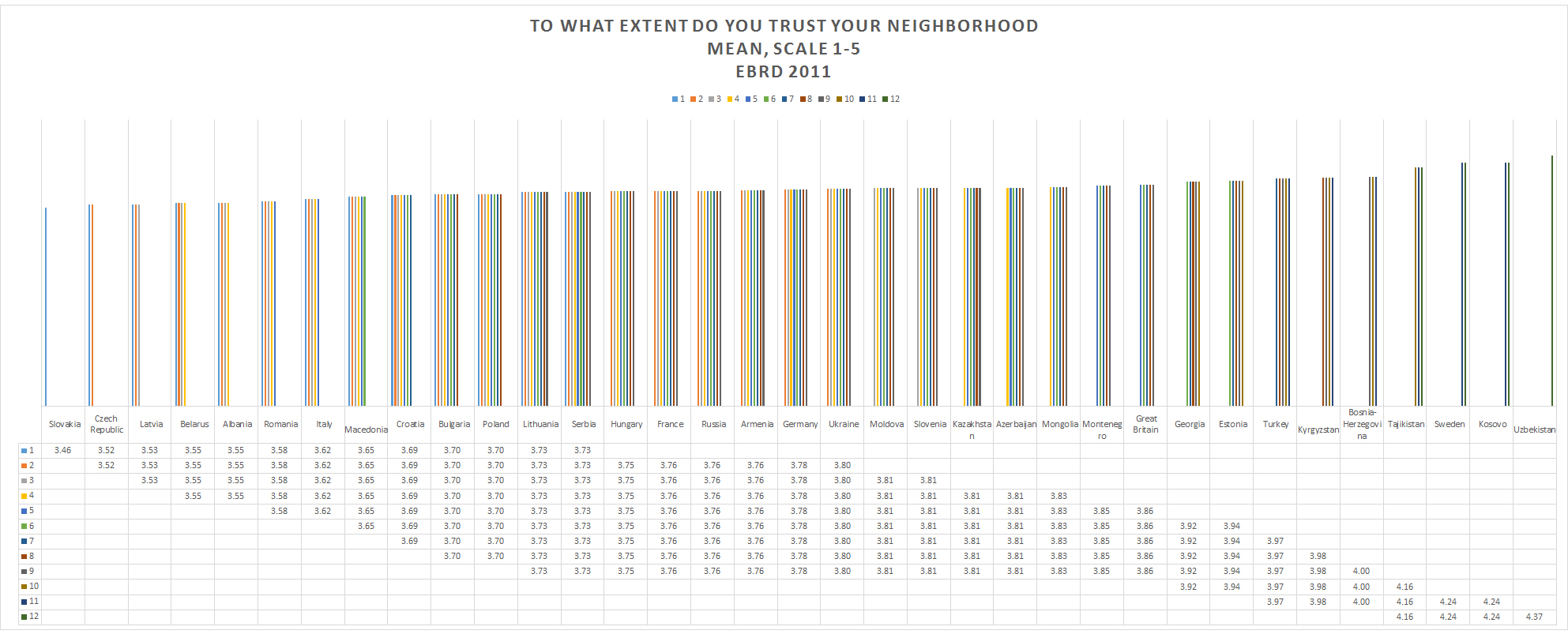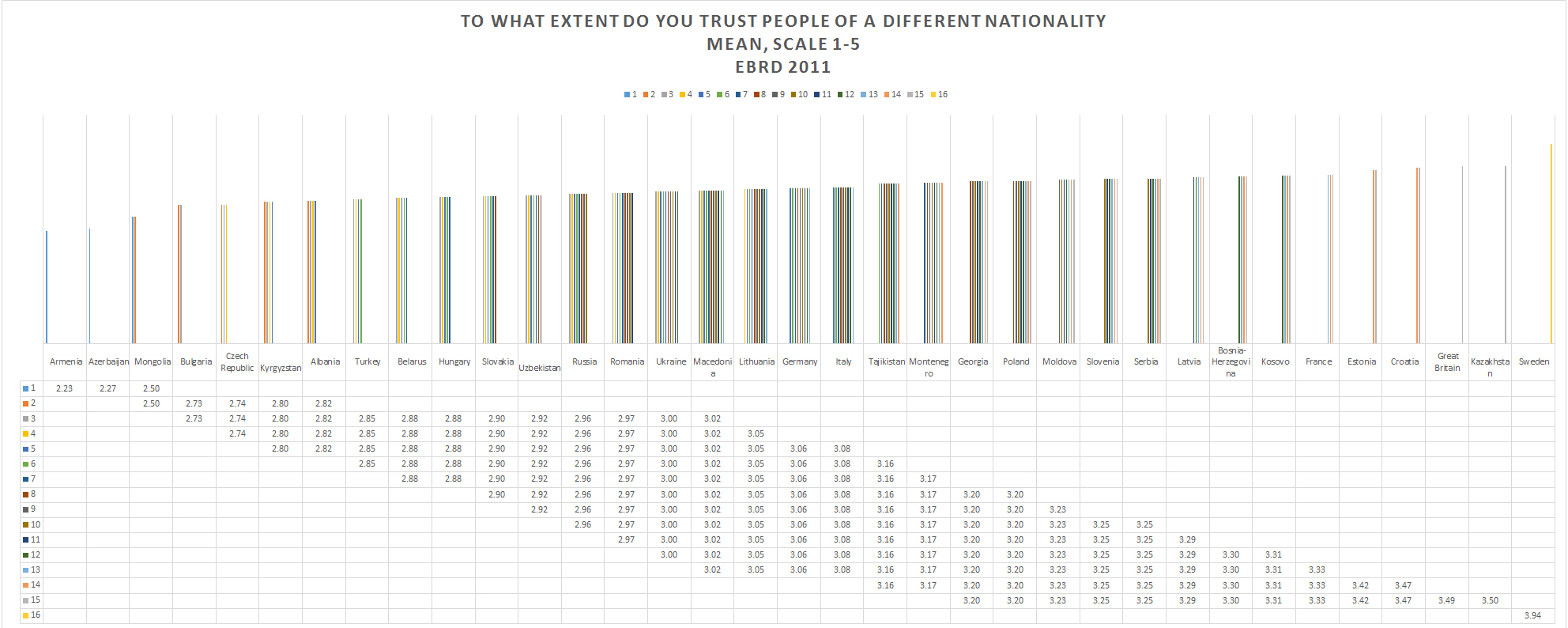Trust and Gender in the Caucasus
I wrote a blog post a few weeks ago about interpersonal trust (using EBRD data). One of my arguments is that Azerbaijanis have very low interpersonal trust. After a conversation with a girlfriend, I had the idea to look at gender differences in trust as well. This is with CRRC data.
First, without gender, you can see that generally Azerbaijanis have much lower trust in others than Armenians or Georgians do, but this varies by question. (These are on a 1-10 scale with 1 not trust, 10 trust completely or 1 total disagree and 10 totally agree).
In this next chart with gender, you can see gender differences in a variety of questions related to interpersonal trust. The only time that there was no significant difference in trust between men and women is for Armenians with the question “there are many people I can trust completely” – otherwise all these differences are significant.
But looking at the two extremes – completely agree and completely disagree, things are also interesting…
In this question of people that one can trust completely, Georgians seem to have it the worst, with only 3 or 4% having someone like that. Overall gender differences aren’t that stark in this question.
Here for money lending, big country differences. Georgians can’t get a break, huh? Gender differences here exist, but not too harshly.
For reliable people, Georgians again are in a bad spot.
Help repair the apartment – well, this is a lot to ask of people, right? Georgians again are not doing well here.
I don’t want to get sick in the Caucasus. Looks like people have trouble finding people to help care for them. Again, no major gender differences here.
So overall, despite there being a statistically significant difference in trust between genders, it doesn’t really manifest in these practical questions.





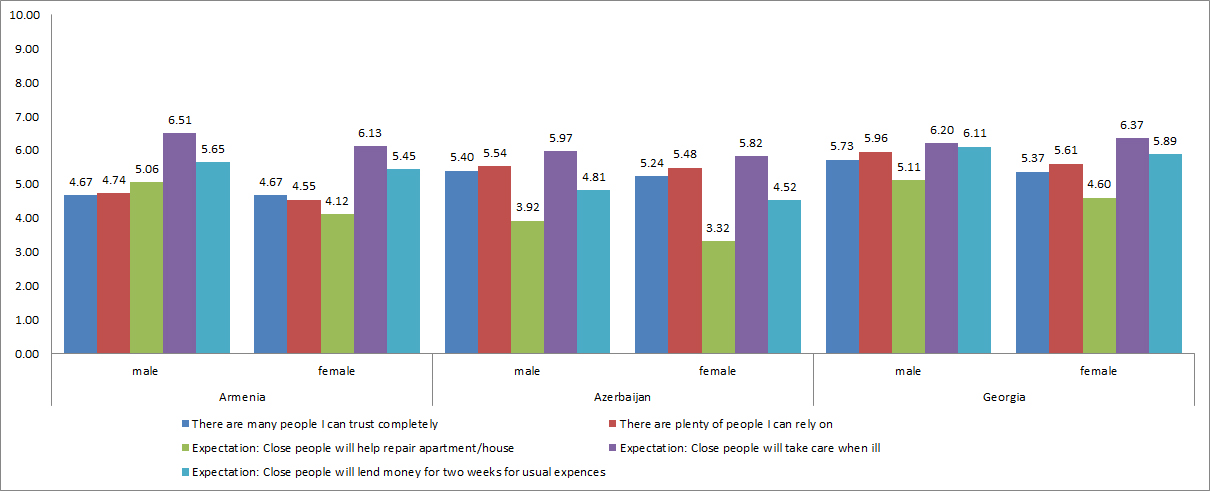






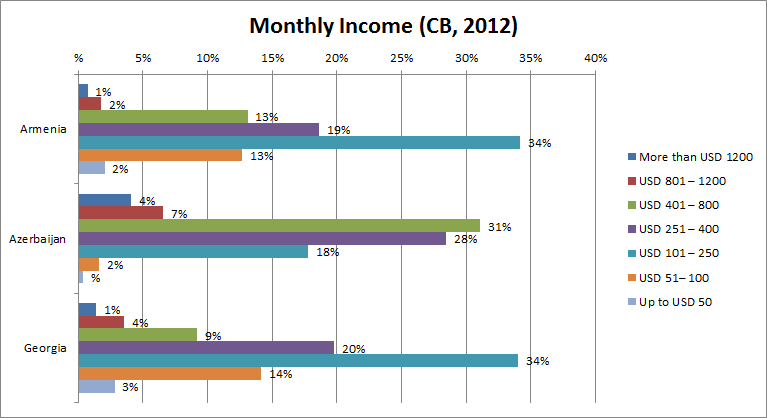

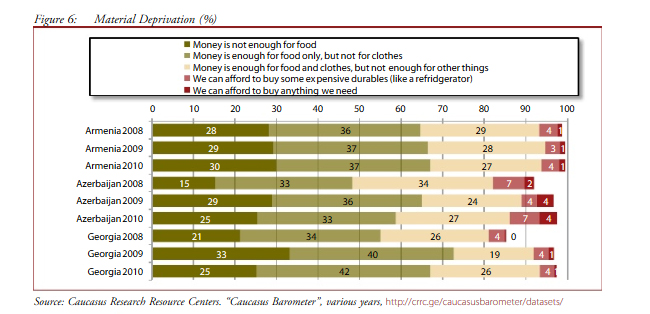



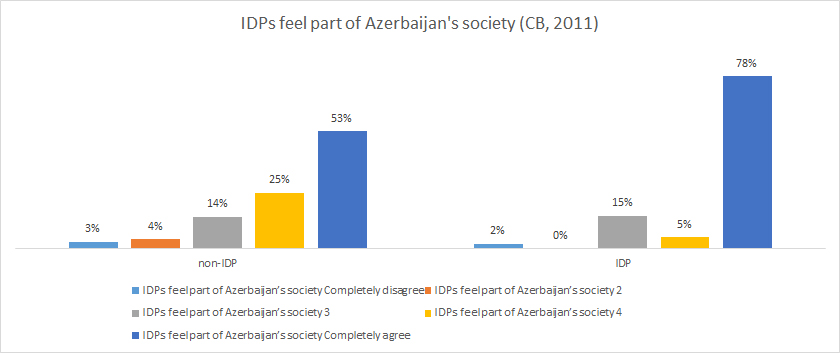







 (Via Civilnet.am)
(Via Civilnet.am)



